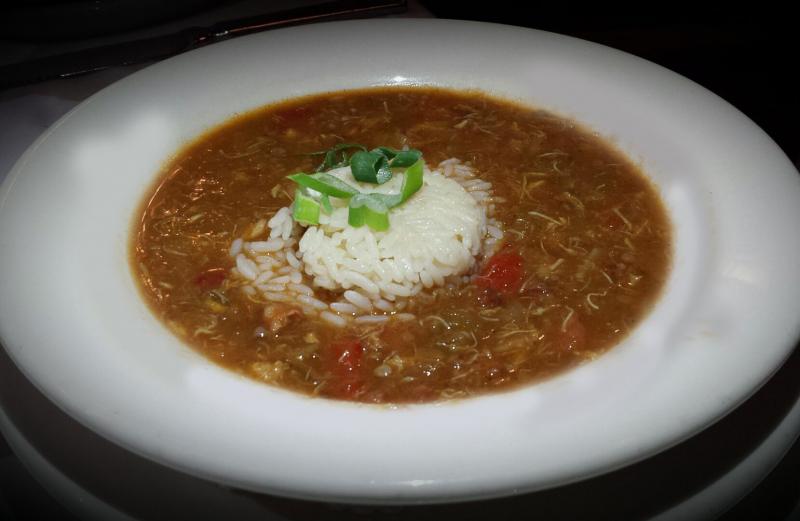Brand protection is as important as brand recognition
The ongoing legal unpleasantness over the abandoned Hooters in Rehoboth's First Street Station got me thinking about franchisors and how they protect their brand from inexperienced or careless franchisees. It's probably not much of a stretch to assume that there's a lot more ... shall we say, flexibility ... in the operation of a Hooters than there might be in the operation of, say, a fine-dining brand like Ruth's Chris Steak House.
Ruth Fertel, a divorced mother of two, mortgaged her home to buy a tiny New Orleans eatery called Chris' Steaks. She built a spotless reputation for food and service, and 10 years later when she changed the name to Ruth's Chris' Steak House, friends begged her to let them open other locations. That might sound nice on the surface, but could they live up to the standards she had worked so hard to create? We've all heard the saying, "If you want something done right, do it yourself," so how could Ruth ensure that each operation consistently delivered her signature food and service?
Though Ms. Fertel is no longer with us, the iconic steak house chain lives on, and is just one example of entrepreneurs who shaped a great idea into a popular franchise. Names like 5 Guys, Starbucks, Applebee's, IHOP, Panera Bread, Greene Turtle and Burger King come to mind, and it's no surprise that some franchisees do a better job than others. In fact, many chains such as Cheesecake Factory, Hillstone Restaurant Group (Houston's), Chipotle Mexican Grille, In-N-Out Burger and even our local Blackwall Hitch, SoDel Concepts and Touch of Italy choose to operate their own properties rather than trust them to others.
So how does a franchisor make sure that its namesakes don't stray from the concept that made them popular to begin with? In the case of Ruth's Chris (the investment group that took over the franchisor dropped the last apostrophe), potential franchisees undergo seven weeks of intensive training. Even though they are ponying up much of the capital, they are required to wash dishes, mop the floor, wait tables, mix drinks and prepare meals under the supervision of corporate trainers. Each job position has an assigned "coach" who is responsible for the proper execution of those duties. Servers go through 10 days of training and are regularly evaluated on details such as the appearance of their uniforms, the timeframe in which to key a particular entrée into the computer, their knowledge of the restaurant's ingredients, how to serve a cappuccino, which side of a T-bone steak must face the customer, how to finish a martini at the table ... the list goes on and on. Bartenders follow precise drink recipes so an Old Fashioned at the Ruth's Chris in Kennesaw, Ga., tastes the same as one ordered in Taichung, Taiwan. At closing, every open wine bottle is pumped with a special gas to preserve the bouquet, and most juices are freshly squeezed every morning. Servers, bussers, runners and bartenders are repeatedly quizzed and graded.
Corporate control over the kitchen is just as strict. Product must be dated and stacked on specific shelves. Each appetizer, salad, side, entrée and dessert is assembled according to exacting guidelines so it tastes and looks like what patrons have come to expect. Daily sales are carefully logged, and fresh ingredients are ordered based on that information. Each recipe, rule and regulation is spelled out in twelve four-inch thick binders that dictate every aspect of the restaurant's operation.
The average check at a Ruth's Chris Steak House can easily exceed $200. With over 130 locations worldwide, the corporation feels the pressure to protect its stockholders', franchisees' and customers' investments by consistently delivering the highest possible value for the money. Locations are visited regularly by "secret shoppers" who pose as customers and report their experiences back to the main office. Patrons are encouraged to offer their comments, both good and bad, which are then forwarded to headquarters and to the general manager.
Of course, corporate regulation isn't just limited to upscale steakhouses. From international behemoths like McDonald's and Yum! Brands to regional franchises like Red, Hot & Blue and Philly Pretzel Factory, franchisors know that it's the employees who stand squarely between their concept and the public. Human beings are not perfect, and in order to flourish in this economy, franchisors must keep a close eye on uniformity, quality - and the bottom line.
















































